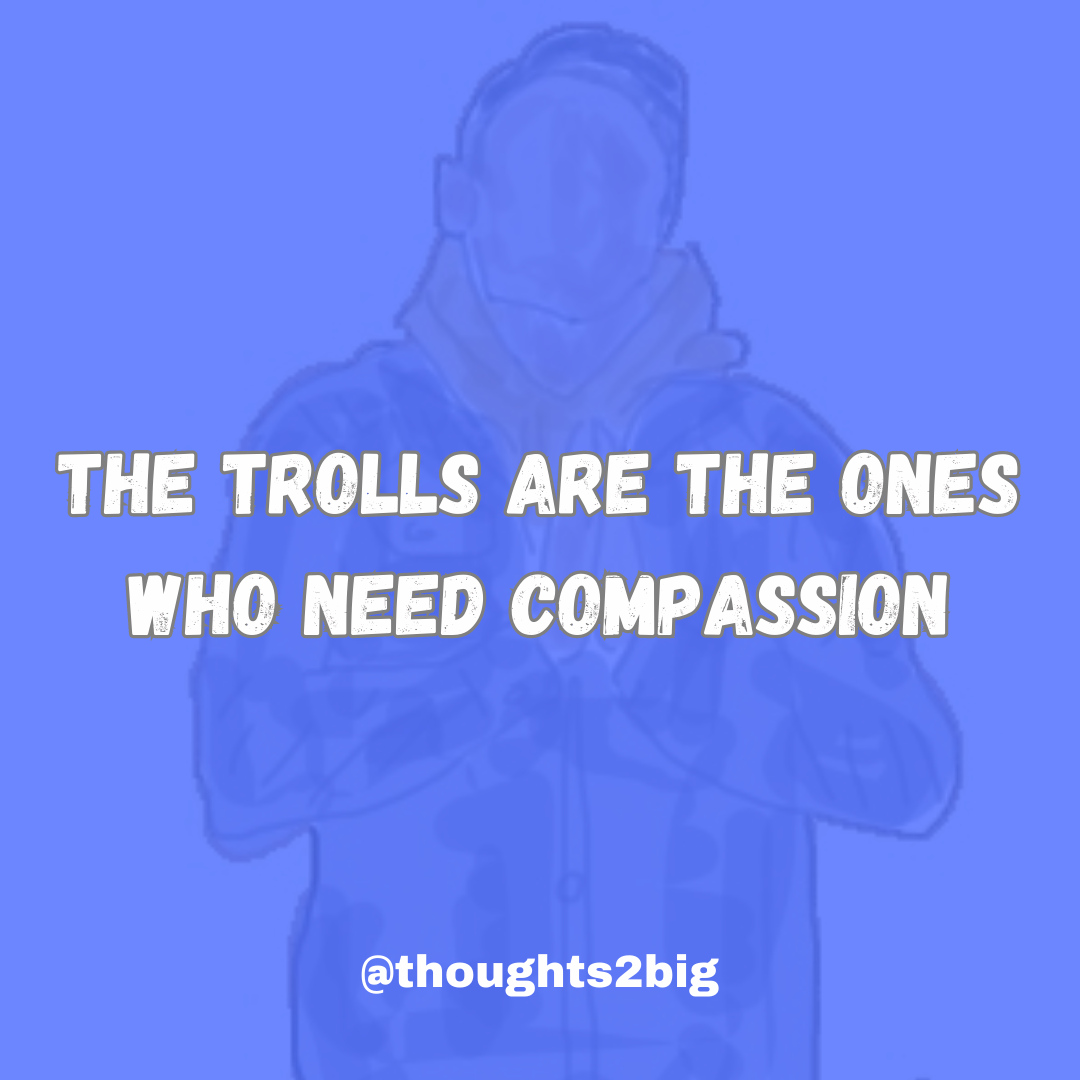The Trolls Are The Ones Who Need Compassion

The Trolls Are The Ones Who Need Compassion
I’ve always been fascinated by the power of words. Maybe it’s because I’ve always been sensitive. It’s why I started writing and it’s why I did my masters in linguistics. I’ve always been interested in the words people use, and how they choose them. Words can inspire, uplift, and connect us to one another. But they can also be used to hurt, to tear down, and to isolate. And in today’s digital age, where we’re more connected than ever before, the power of words has taken on a new dimension.
Online abuse is a growing problem, and it’s one that affects people from all walks of life. From celebrities to everyday individuals, no one is immune to the vitriol that can be spewed online. But what’s often overlooked is the fact that those who engage in online abuse are hurting too.
Recently, I’ve dealt with quite a lot of it. But it’s been an ever-present problem. When you put yourself out there, it comes with the territory. No matter what you do, some people will have an issue with it.
It’s easy to dismiss online abusers as trolls or bullies, but the truth is that they’re often dealing with their own pain. Trolls may be struggling with mental health issues, or they may be dealing with difficult life circumstances. Whatever the case may be, their behaviour is a manifestation of their own pain. Rather than dealing with it, they project it onto other people.
Of course, this doesn’t excuse their behaviour. Abuse in any context is never acceptable, and it’s important that we hold those who engage in it accountable for their actions. But it’s also important that we recognize that these individuals are hurting, and that they need help.
The anonymity of the internet can make it easy for people to lash out without consequence. But the reality is that their behaviour is only perpetuating their own pain. By hurting others, they’re only hurting themselves.
So what can we do to address this problem? First and foremost, a culture of empathy and understanding is needed. This is increasingly rare to find, but we need to recognize that everyone is dealing with their own struggles, and that we all have the capacity to hurt and to be hurt.
We also need to provide resources and support for those who are struggling with mental health issues or difficult life circumstances. hurt people hurt people, and so the longer these issues go unaddressed in these individuals, the longer they will continue to hurtle shite talk across the interweb. By addressing the root causes of online abuse, we can help to prevent it from happening in the first place.
Finally, we need to hold those who engage in online abuse accountable for their actions. This means reporting abusive behaviour, blocking and unfollowing those who engage in it, and speaking out against it when we see it happening.
In the end, online abuse is a symptom of a larger problem. It’s a reflection of the pain and trauma that so many people are dealing with in their lives.
I sporadically write a Substack too.